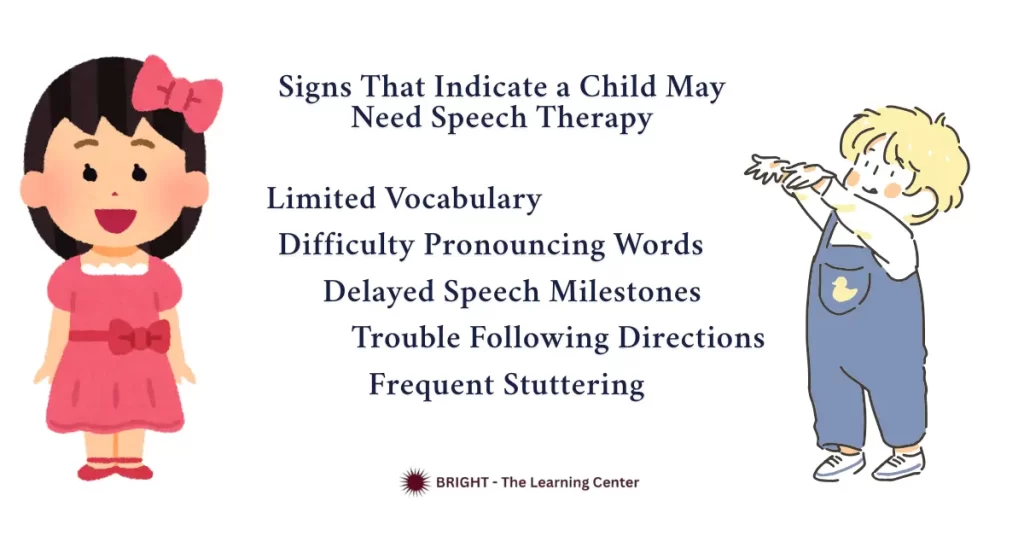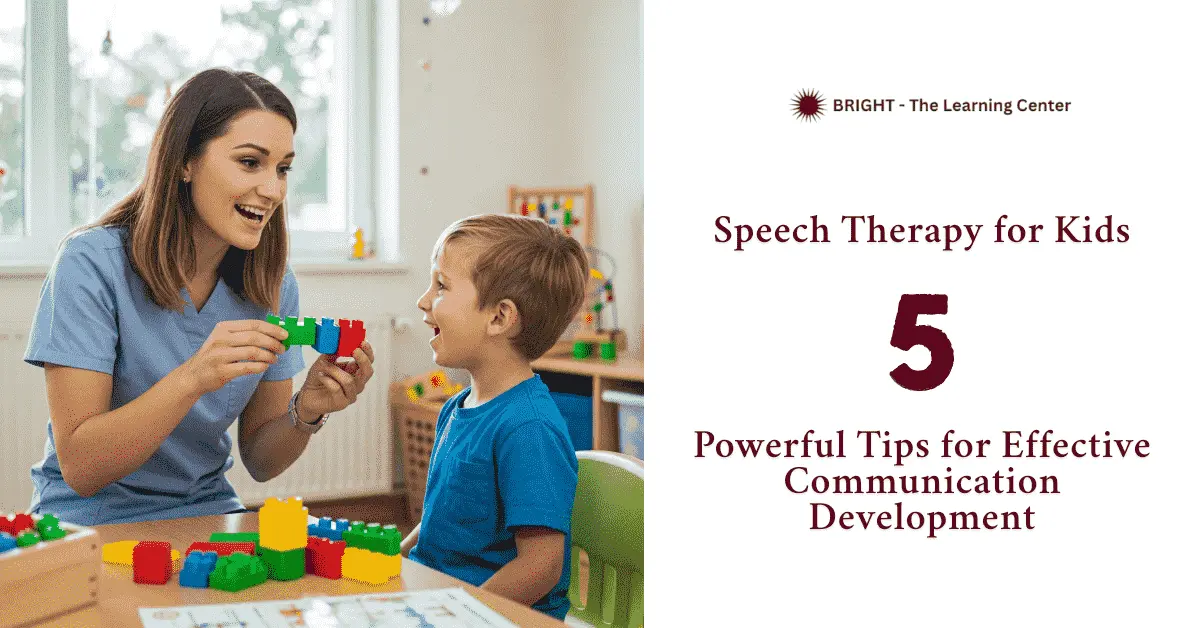Speech therapy for kids is a valuable service designed to help children develop essential communication skills. From addressing challenges like speech delays and articulation problems to supporting language comprehension, speech therapy ensures that children are equipped with the tools needed for clear and effective communication. Early intervention plays a critical role, as it helps children overcome barriers that could affect their social interactions, academic progress, and overall emotional well-being. In this article, we will delve into the importance of speech therapy, how to identify when it's needed, what happens during sessions, and how to find the right speech therapist for your child.
Table of Contents
What Is Speech therapy for kids?
Speech therapy for kids focuses on diagnosing and treating communication disorders, such as speech delays, articulation issues, and language difficulties. This therapy plays a critical role in a child's developmental progress, ensuring they can express themselves clearly and understand others.Speech therapy for kids is essential for fostering communication skills, which are vital for social interactions, education, and emotional well-being. By addressing these challenges early, speech therapy provides children with the tools they need to thrive, boosting their confidence, improving academic performance, and enabling them to engage effectively with peers and adults in various settings.
What Is Speech therapy for kids?
Speech therapy for kids focuses on diagnosing and treating communication disorders, such as speech delays, articulation issues, and language difficulties. This therapy plays a critical role in a child's developmental progress, ensuring they can express themselves clearly and understand others. Speech therapy for children is essential for fostering communication skills, which are vital for social interactions, education, and emotional well-being. By addressing these challenges early, speech therapy provides children with the tools they need to thrive, boosting their confidence, improving academic performance, and enabling them to engage effectively with peers and adults in various settings.
Recognizing Signs of Speech Delays
Speech therapy for kids becomes crucial when certain developmental or behavioral signs emerge, indicating a potential communication disorder. Identifying these common cues early is crucial, as they might indicate the necessity of intervention.
- Limited Vocabulary: If a child’s vocabulary is smaller than that of their peers at a similar age, it may signal a language delay.
- Difficulty Pronouncing Words: Struggling with articulation, such as mispronouncing common words, can hinder clear communication.
- Delayed Speech Milestones: If a child isn't speaking by expected milestones, such as using short sentences by age 2 or 3, speech therapy for kids might be necessary.
- Trouble Following Directions: Difficulty understanding simple instructions or answering questions could indicate a language processing issue.
- Frequent Stuttering: Stuttering or inconsistent fluency in speech can be a sign that a child requires therapy to improve speech flow.
Recognizing these behaviors early and seeking speech therapy for kids can lead to effective interventions that support healthy communication development.

What Happens in Speech Therapy Sessions?
Speech therapy for kids is essential in addressing communication challenges. This article highlights its importance, signs that therapy is needed, and what to expect during sessions, helping parents and caregivers support their child's communication development effectively.
Assessment: An SLP conducts an evaluation of the child's speech, language skills, and communication abilities.
Personalized Plan: Following the assessment, a personalized therapy plan is developed to target individual needs, like articulation or language comprehension.
Engaging Activities: Sessions include interactive exercises, games, and practices to improve speech sounds, vocabulary, and understanding of instructions.
Consistency: Regular practice and repetition help reinforce learning and skill development.
Progress Monitoring: Improvements are monitored by the therapist, and the plan is adjusted as required to maintain continuous progress.
Positive Environment: Sessions are designed to be enjoyable, encouraging the child to stay engaged and motivated in their learning.
Benefits of Early Speech Therapy
Starting speech therapy early in childhood provides a wide range of advantages that go beyond simply enhancing communication abilities. When therapy begins early, it can lead to significant positive outcomes in several key areas:
- Speech and Language Development: Early intervention helps children develop clearer speech and a richer vocabulary, allowing them to express themselves more effectively.
- Social Skills: By improving communication abilities, speech therapy supports better social interactions, helping children build relationships with peers and adults.
- Academic Skills: Strong language skills are critical for success in school. Speech therapy empowers children to follow instructions effectively, actively participate in classroom discussions, and demonstrate improved performance in reading and writing.
- Emotional Confidence: As children gain communication skills, they feel more confident in social settings and at school, reducing frustration and boosting self-esteem.
Starting speech therapy early can set the foundation for a lifetime of success, aiding in both personal and academic growth.
How to Choose the Right Speech Therapist
For your child's therapy to be effective, it's essential to select the correct speech therapist. When making this important decision, keep these key factors in mind:
| Consideration | Guidance |
| Qualifications and Experience | Choose a licensed and certified SLP who specializes in working with children. |
| Specialization | Verify that the therapist specializes in the particular issue at hand, such as articulation, language delay, or stuttering. |
| Approach and Methods | Inquire about the therapist’s approach to therapy. A good therapist uses engaging, child-friendly techniques tailored to the child’s needs. |
| Compatibility | Choose a therapist your child feels comfortable with. A strong rapport can greatly enhance the effectiveness of the therapy. |
| References and Reviews | Ask other parents or healthcare providers for recommendations based on their positive experiences. |
| Location and Availability | Consider essential factors such as the therapist’s location, availability, and whether they can accommodate flexible scheduling. |
By keeping these factors in mind, you can choose a qualified and compatible speech therapist who will work best for your child’s needs.
FAQs About Speech Therapy for Kids
1. What age is best for speech therapy for kids?
If speech delays are present, therapy can start as early as 18 months, making early intervention crucial. Most children begin therapy between ages 2 to 5, especially if they are not meeting expected speech and language milestones.
2. What is done in speech therapy for kids?
A speech-language pathologist (SLP) customizes sessions to suit each child’s needs. Therapy may involve:
- Sound and pronunciation practice
- Vocabulary development
- Improving listening and comprehension skills
- Social communication strategies
- Interactive games and structured activities to support speech and language growth
3. How many days does speech therapy take for kids?
The frequency and duration vary by individual. Most children attend sessions two to three times per week.
- For mild delays, therapy might last a few months.
- For moderate to severe difficulties, therapy can extend to six months or more.
Consistent attendance and home practice greatly influence progress.

